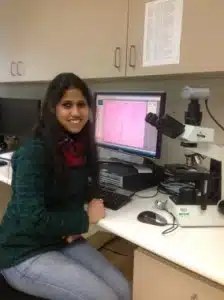Babies conceived through in vitro fertilisation may have an increased risk of heart disease in adult life, an Adelaide scientist has found.
Monalisa Padhee, of The University of South Australia, found sheep fetuses conceived through IVF had bigger hearts than those born naturally, raising questions about the long-term health effects of the popular technology.
“An enlarged heart is one of the strongest predictors of heart disease in later life,” says Monalisa, who undertook the study as part of her PhD. “Bigger hearts are sometimes considered a good thing as athletes have them, but the enlargement of the heart through IVF is non-exercise based and therefore not good.”
According to Monalisa, the earliest period of embryonic development is critical in determining the heart health in later life and any subtle changes may have adverse effects on normal heart development.
“We are trying to understand what genes and proteins are altered as a result of IVF procedures and this information may provide the links between IVF and increased risk of heart disease,” she says. “This data shows that further investigation is warranted so that the parents of children conceived through IVF can just enjoy the miracle of being parents to a happy and healthy baby.”
SA State Finalist: Monalisa Padhee, University of South Australia






 Fresh Science is on hold for 2022. We will be back in 2023.
Fresh Science is on hold for 2022. We will be back in 2023.